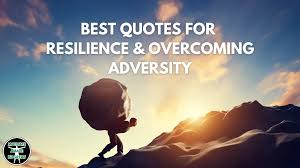It is nothing to die. It is frightful not to live. It was a bright cold day in April, and the clocks were striking thirteen. That which does not kill us makes us stronger. .
The Fright of Not Living
“It is nothing to die. It is frightful not to live.” — Victor Hugo
Victor Hugo’s words pierce through the heart of existence. Death, inevitable and natural, is not the real tragedy — the tragedy lies in failing to live while we are still alive. Too many people move through life half-awake, trapped in fear, routine, or regret. They breathe, but they do not feel; they exist, but they do not live.
To live means to embrace joy and sorrow alike — to take risks, to love deeply, to stand for something even when the world stands against you. Hugo reminds us that the true horror is not the end of life, but the absence of life within us. Every day we delay our dreams, silence our voices, or bury our passions, a small part of us dies.
Real living demands courage — the courage to feel pain, to face loss, and still believe in beauty. It is not the number of our days that matters, but the fire with which we spend them.
The Cold Reality of the Modern World
“It was a bright cold day in April, and the clocks were striking thirteen.” — George Orwell, 1984
George Orwell’s opening line from 1984 captures a chilling paradox — brightness mixed with coldness, order mixed with unease. The phrase “the clocks were striking thirteen” breaks reality itself, signaling that something is wrong in the world. Beneath its simplicity lies a powerful message about life under control, fear, and conformity.
In today’s world, Orwell’s imagery feels eerily familiar. The “bright cold day” mirrors the modern age — full of technological light, yet emotionally cold. We scroll endlessly through screens but rarely touch real connection. We speak in messages but forget to listen. We are free in name but often chained by expectations.
The striking of “thirteen” symbolizes the distortion of truth — a world where right and wrong blur, and authenticity is replaced by appearance. Orwell reminds us that living fully requires awareness. We must not just survive within the system but awaken our minds against numbness. To live, in its truest sense, means refusing to be controlled — by fear, society, or even our own complacency.
The Fire of Resilience
“That which does not kill us makes us stronger.” — Friedrich Nietzsche
Few lines in philosophy have inspired humanity as much as Nietzsche’s. Pain, when endured and understood, becomes the very source of strength. Suffering refines the soul the way fire purifies gold. Every wound, every failure, and every heartbreak becomes a lesson carved into our being — shaping us into something greater.
Yet Nietzsche’s message is not about glorifying pain; it is about transformation. He tells us that strength is not born from comfort, but from resistance. Just as muscles grow through strain, the spirit grows through adversity. When we face darkness and survive, we learn that light was always within us.
Life tests everyone differently — through loss, rejection, or hardship — but those who embrace their trials instead of fleeing from them emerge wiser and stronger. The pain that once broke them becomes their armor.
When Life, Reality, and Strength Intertwine
Together, these three quotes create a powerful philosophy of life:
- Hugo teaches us to truly live.
- Orwell warns us to stay aware and awake.
- Nietzsche reminds us to grow through struggle.
These are not separate lessons but parts of one truth: Life is both fragile and fierce. To live authentically, we must awaken from the numbness of routine, confront the cold reality of our world, and transform our pain into power.
Living, then, is not about avoiding fear or sorrow. It is about walking straight into them — with eyes open, heart burning, and spirit unbroken. The person who dares to live fully, despite everything, becomes unstoppable.
The greatest strength is not physical endurance, but the courage to rise again after being broken — to choose hope over despair, love over fear, and truth over comfort.
Conclusion: The Courage to Be Alive
Victor Hugo’s words remind us that life’s horror lies not in death, but in living without purpose. Orwell shows us that the world can be bright yet cold — and it is our awareness that keeps us human. Nietzsche completes the circle, teaching that every struggle can become strength if faced with courage.
So live.
Live loudly, love deeply, and think freely.
Let your scars become stories, your fears become lessons, and your life become proof that you refused to merely exist.
For in the end, it truly is nothing to die —
but it is everything to live, awaken, and become stronger.








